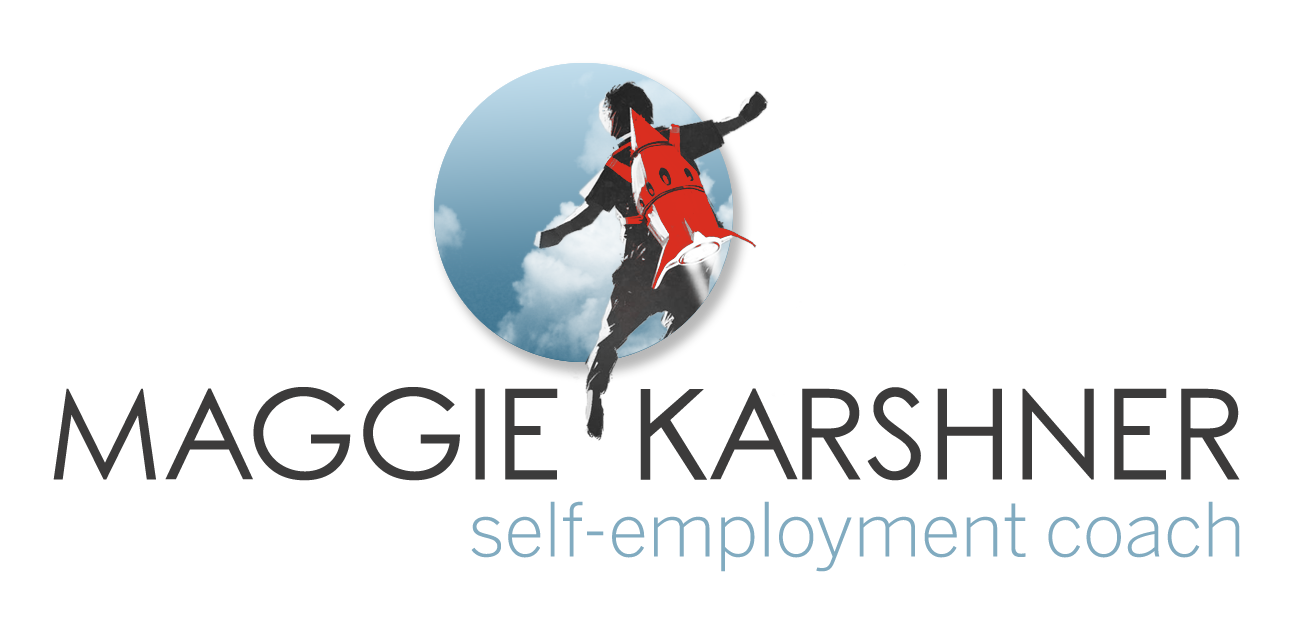Want a Risk-Free Business? Learn 3 Ways to Keep Yourself Protected
/Operating a business opens you up to risks different from those of being employed. Not all people consider this when they're launching their business. You're interfacing with the public at large without a manager to blame! If your business were to face legal action, you're going to be the one dealing with it. You are both the C-suite executives and the "legal department" after all! A hit to your brand reputation (or even just your confidence) can put your revenue stream in jeopardy.
So what do we do? Not launch our dream business? Hell no! We approach risk in a careful and methodical way. First, assess your risk before a bad thing happens. Keep reading, that's exactly what we're here to do! Second, understand the chances of it happening. And finally, put protections in place. Ideally, this means you're considering your risk exposure from the beginning of your business. But in lieu of that, how about now!? Let's explore your risk and what protections you can put in place!
What is Your Risk?
I think of risk as a series of worst-case scenarios. As a business, you're providing products or services to your customers. Disgruntled or unsatisfied customers could sue you. Businesses also create and distribute marketing materials. You could be sued by non-customers who object to something you've produced. Any physical location could see a stranger sue because of an injury on your property. (Even if they inflicted it on themself!)
Our country is a very sue-happy one. You could experience most of these suits even when you're not in business. It's highly unlikely that dinner party guest will sue you for twisting their ankle on your lawn. It's similarly unlikely for businesses, with two key differences. First off, businesses are exposed to more people and you know them less intimately. (Unless you're in the habit of having daily dinner parties for strangers. In which case: my mistake!) Secondly, businesses are perceived to have deeper pockets than individuals. Those not in the know might see a business with a million-dollar budget and think the owner is rolling in dough. But we know that the bulk of that budget is going to operating expenses and payroll. Malicious people looking for a million-dollar payday are more likely to target a business than an individual.
Protection
In your personal life, you probably don't think much about the risks you're exposed to, and you do just fine by it. Like how you avoid getting in a bar brawl by not picking fights in bars, your rational behavior goes a long way! In your personal life, you're also protected by a myriad of insurances. Car insurance, and home or renter's insurance all provide an element of legal protection from frivolous lawsuits. Similar protections exist for business, plus one special one: the LLC. Let's look at these three layers of protection individually.
1. First Line of Business Protection
Your first line of defense as a business owner is similar to what you do as an individual. Don't pick fights. Do good work. De-escalate disgruntled customers as much as possible. I know it sounds like the obvious. But if you've ever heard of Amy's Baking Company, then you know it's not. So protect yourself by being a reasonable person. You'll also save yourself money and stress. Take this line of defense seriously, and give yourself credit even if it feels easy!
2. Second Line of Defense: Insurance
Your second layer of protection is also similar to in your personal life: have insurance! There are two major types of coverage for businesses: general business liability insurance and professional liability insurance. You can have both, but first, let's understand what these do.
General business liability insurance covers your business's existence and basic operation issues. This means it generally includes injury or damage at your location. (This is regardless of whether you were involved.) It can include issues of your digital presence or marketing. For example, copyright or libel suits. It also can include protection against claims by employees or contractors. This type of insurance is usually required by commercial landlords and tends to be the cheaper of these two. But check with your insurance company to be sure about the terms of your specific policy.
Professional Liability Insurance is different and goes by several names. Malpractice, and Errors and Omissions (E&O) insurance are both versions of professional liability coverage. These types of coverage protect from suits stemming from advice or consultation provided. You need to have the right version of this insurance for your situation. E.g. Medical malpractice insurance wouldn't do me a lick of good! For many of us solopreneurs, the risk of these is pretty low, and hence the rates are similarly quite low. I think of my insurance as an investment in an army of lawyers who are highly motivated to not have our side pay!
3. The Ultimate Protection: an LLC
The idea of what an LLC is and what it does has a lot of facets. We're going to dive into the legal protection aspects, but there are also tax implications. Do you need an LLC? That's a better question for a lawyer than myself. Here I will share some background knowledge that will help you better understand why you might want one.
An LLC creates a legal entity that is separate from you as a person. Remember how the Supreme Court decided corporations are people? Yeah, it's kinda like that. Besides the fact that the LLC can't go to jail, legally and financially it's separate from you the person. It can feel like you're the Wizard of Oz when you're a person with a single-owner LLC. The Wizard is the LLC, but it's really just little old you behind the curtain! The thing is that our legal system doesn't treat this as the charade it seems. The Wizard can be sued, and suing the Wizard doesn't mean the man behind the curtain gets sued. (Though he too could get sued.) (Have I mentioned we're a sue-happy country?) Having an LLC also gives you access to a worst-case scenario solution. If it all goes bad, the LLC could file for bankruptcy or close. But your personal finances would remain intact.
Something that throws people off is that at the Federal level, they don't acknowledge LLCs. This can seem confusing because your single-owner LLC - that I just said is its own person - doesn't get its own taxes. Its income and expenses show up on your income taxes. With the IRS you can elect for your LLC to be treated as an S-corp. Then your LLC does get its own taxes. Unfortunately, this does not make your LLC any more or less of a separate "person." It just means more paperwork. (If you use a tax preparer, then you'll have double the fee.) There are reasons to do this, but not legal protection reasons. It's all the same on that front.
The other REALLY important thing to know about LLCs is that their "personhood" comes with a BIG caveat. If you don't treat it like an entity separate from yourself, then it might not count. And you'll discover this during one of those worst-case scenarios is happening. In lawyer speak what's happening is that if you pierce the "corporate veil" too much your LLC might get "disregarded." Let me unpack that for us non-lawyers.
The law determines an entity is separate if the financial assets are separate. For the types of businesses I work with, this means the business needs its own bank account(s) in its name. The money the business earns needs to go into the business account(s). The money the business spends needs to come from the business account(s). You can take money from the LLC, but it needs to go into your personal account and get spent from there. Don't use the company debit card when you're doing your grocery shopping!
Separate finances also mean your bookkeeping needs to be more... well, it needs to exist. A shoebox of receipts and your bank statements isn't good enough. If you're using Quickbooks or Wave App then you're golden.
Layers of Protection from Risk
I love a good visual, so I made us one. I see these layers of protection like layers of blankets. Having an LLC puts a blanket between you and the business. Having insurance is like adding a blanket of lawyers. One on top of you, and one on top of the business. All together, they make you more safe and cozy in a rough and risky world. Here's a visual that sums it up:





